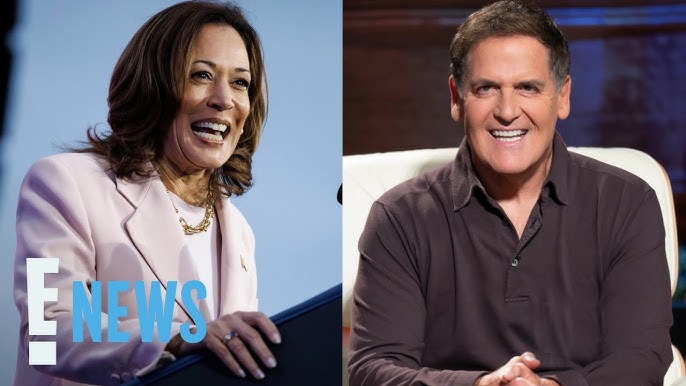Cuban’s Rejected VP Role Exposes Harris’ Desperate Tactics
Mark Cuban, technology magnate and famed investor, disclosed an interesting tidbit regarding the 2024 presidential race involving Kamala Harris. It appears that her team approached him to ponder the possibility of joining her ticket as the VP nominee. A revelation that gives a peek into the desperate attempt of Harris’ floundering campaign to attract public and media attention.
The revelation came to light during a chit-chat with Tim Miller, the host of the Bulwark podcast. Amidst discussion of customary green-room rumors, Miller revealed some insider scoop that suggested Harris’ team had courted Cuban for a VP role. On being asked about the authenticity of this claim, Cuban neither denied nor evaded the question.
In fact, his response was surprisingly candid, confirming the rumors to be true. Counterintuitively, Cuban mentioned his reluctance to take a backseat role in the administration. ‘The last thing we need is me telling Kamala, the president, ‘No, that’s a dumb idea.’ I’m not really good at shaking hands and kissing babies.’ This underscores Cuban’s refusal to back policies he disagrees with, something Harris’ administration may not have been comfortable with.
It seems that Cuban’s disinterest lies in his assertion that he is not ‘a number-two person’, implying the disagreement he might have had with Harris’ approach if he was a part of the administration. This statement insinuates how the Harris administration might have functioned, insisting on agreement rather than encouraging constructive disagreement.
Eventually, Harris had to settle for Minnesota governor Tim Walz as her running mate. It’s amusing to consider how this decision might have been influenced by Cuban’s rejection. Despite Miller’s assertion suggesting the campaign might have had a different outcome with Cuban as VP, the new revelations show a campaign in disarray.
Cuban’s interesting perspective on how things would’ve turned out with him on Harris’ ticket raises eyebrows. ‘It obviously would have been different… but it would have been awful,’ he confessed. This implies that Cuban, having a completely separate experience and background from traditional politicians, might have disrupted the usual political rhetoric, likely causing tension within the Harris Administration.
In a humorous turn, Cuban suggests that his candidness and non-political approach would have led to his quick dismissal within the hypothetical administration. ‘She would have fired me within six days,’ he stated, pointing to the unwelcome nature of straightforward perspectives within the Harris administration.
When Biden pulled out of the presidential race abruptly after earning the Democratic nod in July 2024, Cuban emerged as a vocal supporter of Harris. One has to wonder if this display of support was just political posturing or a genuine belief in Harris’ ability to lead the country, considering his reluctance to join her administration.
His frequent appearances at rallies and events in key swing states, in support of Harris, was in stark contrast to his preparedness to challenge and confront her on various issues – leading to mixed messages. Whether this was the result of a leadership vacuum or tactical manoeuvring is open to interpretation.
Despite these efforts, the final verdict was in favor of President Donald Trump and his vice presidential candidate, J.D. Vance. Regardless of how it might have turned out with Cuban in the equation, this confirms the lack of confidence the electorate had in Harris’ leadership capabilities.
Looking back at his interview, Cuban’s remarks that he ‘thought she was going to win’, seem more like a last-ditch attempt at optimism considering the actual results. It serves as another stark reminder of the reality of the doomed Harris campaign.
The conflicting portrayal of support for Harris from Cuban suggests a tipping scale of political reputation versus personal belief. This episode sheds light on the complexities of political decision-making and how individual personalities can drastically influence the progress of a campaign.
However, it’s worthwhile to consider how negative Cuban’s perspective on serving as VP was, underlining the subdued chaos within the Harris campaign. It also provides a hint of the expectations that followed those chosen to serve in such positions and the ensuing compromise that comes with it.
In conclusion, while the original intention of Harris’ team to consider Cuban as a possible VP nominee could have been a strategic move, it turned out to be a damp squib. Despite his public endorsement of Harris, Cuban’s reluctance to join her campaign on an official capacity paints a poignant picture of discord and looming failure.

